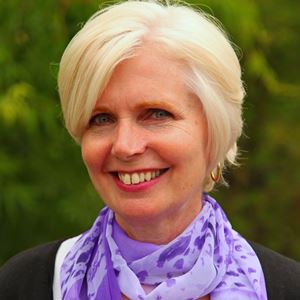 How is the EFC engaged in interfaith collaboration? We asked Aileen Van Ginkel, EFC Vice-President, Ministry Services, as part of our Three Questions Series.
How is the EFC engaged in interfaith collaboration? We asked Aileen Van Ginkel, EFC Vice-President, Ministry Services, as part of our Three Questions Series.
Q1. What is interfaith collaboration? How is the EFC engaged in it?
Interfaith collaboration occurs whenever people from very different faith traditions discover that they hold common goals and share resources with one another to achieve those goals.
The EFC has engaged with non-Christian faith communities on common goals since the 1990s. We have worked with Jewish, Muslim and Baha’i groups, as well as fellow Christians (including historic Protestant, Roman Catholic and Orthodox), to uphold religious freedom in education, alleviate poverty internationally, support marriage and champion support for access to high-quality palliative care.
We are also active participants in the Canadian Interfaith Conversation, a group whose members work for a healthy pluralism where faith communities have full voice in building a civil society. I currently co-chair the Conversation alongside Zul Kassamali, a leader in the Ismaili (Muslim) community.
Q2. How would you respond to Evangelicals who might feel some hesitation about interfaith collaboration?
Some Evangelicals wonder if our faith as evangelical Christians will be compromised if we work with people from non-Christian communities. What we have come to realize is that people from those communities have the same concern. None of us want to compromise our foundational beliefs. We don’t pretend that our theology is the same underneath the surface, instead we begin with the assumption that our starting points are very different. We recognize the differences between us and respect them as we look to areas of shared concern, especially whatever relates to the common good of all people of faith and of all Canadians.
Our interfaith work on palliative care is a good example of how this works. When we welcomed members of various faith communities in the EFC office to explore collaborative opportunities, we started by encouraging each person to talk about how their concern for palliative care is rooted in their foundational beliefs. While we recognized that we came from different starting points, we were able to work together to develop a framework for advocating for palliative care reform. By taking this step, each of us were assured that our foundational beliefs were at play in shaping a framework that was meaningful for us and would help guide us in the practical steps of developing advocacy strategy and tactics.
Q3. What have you enjoyed in your interfaith collaboration work?
When we helped to form the Canadian Interfaith Conversation, EFC President Bruce Clemenger and I wanted to ensure that the focus of this effort would be on building a platform to allow faith communities to express how to better their situation and that of all Canadians, keeping their faith differences intact. This emphasis on dialogue is evident in the Our Whole Society conference series (2013, 2015, 2017 and planned for 2019), through which we have invited consideration of a healthier pluralism alongside secular theorists as well.
As I’ve worked with Conversation colleagues in organizing the conferences, I’ve also come to realize that these are people who believe the best of what evangelical Christianity is all about, not the media horror stories, just as I’ve come to trust and respect them as true representatives of Muslim, Baha’i and other faiths. We have not pretended to be other than who we are at the deepest levels of our differing faith and understandings of the world, yet we have found that we can depend on one another to get the work done. We have a shared vision of a society that welcomes people of faith as people of faith at all levels of societal and political engagement.